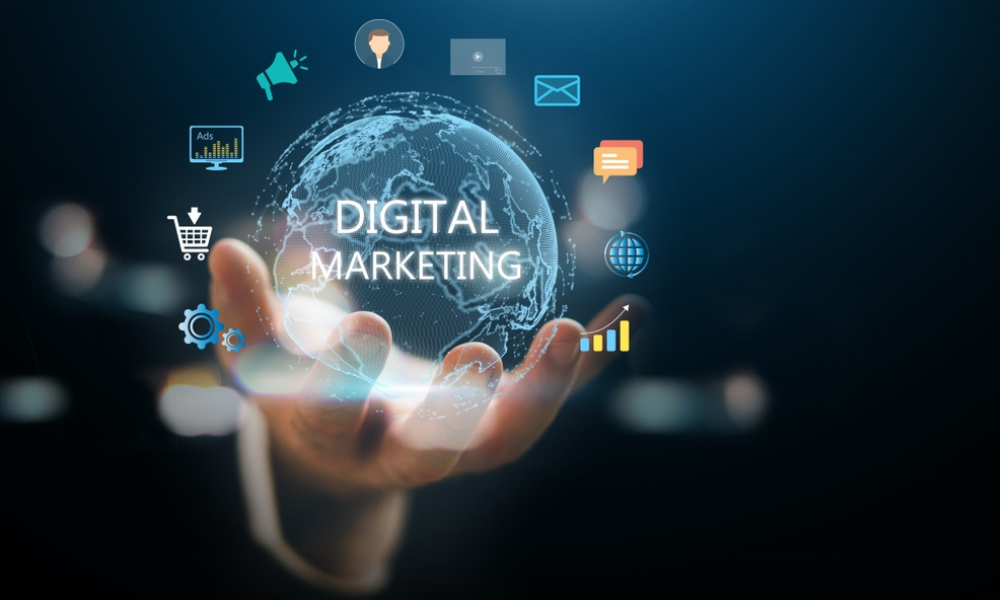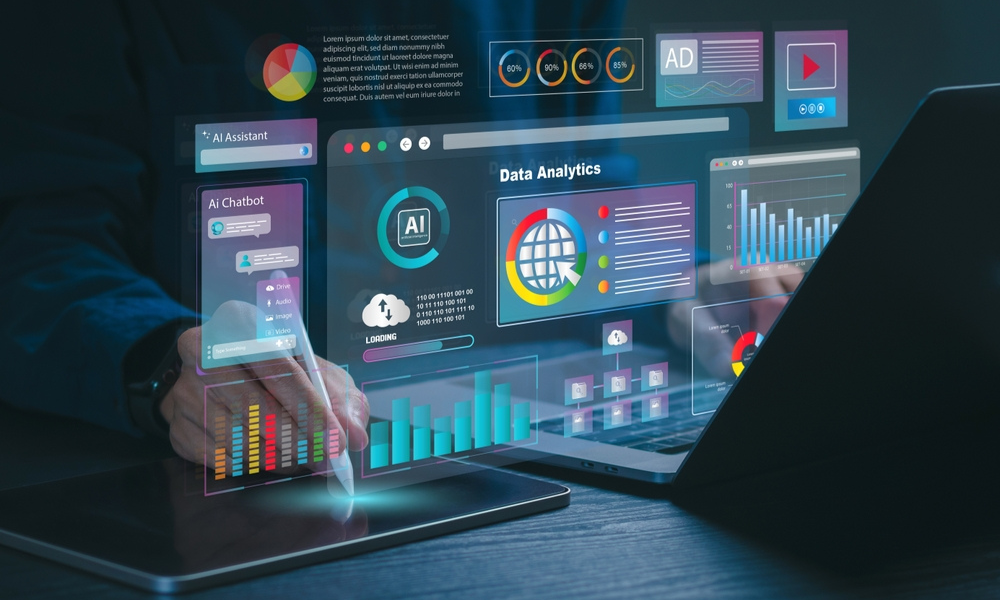The construction industry is undergoing a digital transformation, with businesses worldwide leveraging technology to optimize operations and attract clients. Artificial intelligence (AI) is at the forefront of this revolution, offering opportunities to personalize marketing efforts, predict client needs, and improve engagement.
As someone deeply committed to helping construction companies thrive, I’ve seen firsthand how AI-driven strategies can make a difference. Let’s explore how your business can harness AI to stay ahead globally, including right here in Perth, Western Australia.
What You’ll Learn in This Guide
Understanding AI in Digital Marketing
Grasp how AI transforms marketing in the construction sector.
AI Tools for Marketing Success
Discover tools that automate tasks and enhance client targeting.
Examples of AI in Action
Learn how businesses use AI to drive growth and engagement.
Integrating AI into Your Workflow
Practical steps to adopt AI in your marketing processes.
The Pros and Cons of AI
Understand the benefits and challenges of AI-driven marketing.
Developing AI Skills
Build the competencies needed to thrive with AI.
1. Understanding AI in Digital Marketing
AI in digital marketing uses data analytics, natural language processing (NLP), and machine learning to refine and improve marketing strategies. For construction companies, AI offers tools to analyze market trends, target specific client segments, and optimize advertising efforts.
Imagine analyzing thousands of past projects to identify the services most in demand in a specific region. AI makes such tasks not only possible but efficient. Beyond identifying trends, AI can adapt campaigns in real-time, ensuring your marketing resonates with current client needs.
2. AI Tools for Marketing Success

AI tools simplify and elevate marketing efforts, helping you focus on strategy rather than repetitive tasks. Here are some tools worth considering:
Writer: Generate polished content for blogs, emails, or advertisements.
Surfer SEO: Optimize your content to rank higher on search engines.
Mailchimp: Personalize email campaigns and analyze their performance.
Zapier: Automate workflows by connecting different apps your business uses.
Drift: Use AI chatbots to enhance client interactions and generate leads.
Evolv.ai: Personalize client experiences in real-time using machine learning.
Each of these tools is designed to improve efficiency and deliver better results, whether you’re targeting local clients in Perth or an international audience.
3. Examples of AI in Action
AI’s flexibility makes it applicable across industries, including construction. Here are some real-world examples of how businesses are benefiting:
Sephora’s AI Chatbots:
Beauty retailer Sephora uses AI-driven chatbots to guide customers through product selections, leading to increased sales. Construction companies can adopt similar chatbots to answer client inquiries, provide quotes, or explain services.
Netflix’s Recommendations:
The streaming giant uses AI to analyze viewer data and recommend content, improving user retention. Similarly, construction businesses can use AI to recommend services based on client preferences or project histories.
These examples demonstrate AI’s potential to improve client interactions and drive sales.
4. Integrating AI into Your Workflow

Adopting AI doesn’t mean overhauling your entire process—it’s about integrating tools where they make the most impact. Here’s how construction companies can incorporate AI:
Content Creation
AI tools can draft engaging blog posts, social media updates, and email campaigns. For instance, creating a blog on “Top Trends in Sustainable Construction” becomes easier with AI-assisted drafting tools.
SEO Optimization
AI-powered SEO tools analyze keywords, suggest content improvements, and optimize meta tags to improve visibility. This means your business is more likely to be discovered by potential clients searching for construction services online.
Customer Interaction
Implement chatbots to answer questions instantly. If a potential client visits your website and asks, “How long does it take to complete a home renovation?”, the chatbot provides a detailed response while capturing their contact information.
Predictive Analytics
AI can analyze market trends to predict future demands. For example, if more clients are searching for “modular homes in Perth,” you can adjust your strategy to emphasize modular construction services.
5. The Pros and Cons of AI
AI is a powerful ally, but it’s not without its challenges. Here’s a breakdown:
Advantages
Enhanced Personalization: AI customizes messages based on individual client preferences.
Increased Efficiency: Automates repetitive tasks like email scheduling or data analysis.
Cost Savings: Reduces the need for extensive manpower by streamlining workflows.
Real-Time Insights: Provides actionable data quickly, enabling you to adapt strategies on the go.
Challenges
Data Privacy: Handling sensitive client data responsibly is critical.
Skill Gaps: Teams may need additional training to use AI tools effectively.
Bias Risks: AI relies on data, and inaccuracies can lead to biased outcomes.
Being aware of these pros and cons helps you make informed decisions about integrating AI into your marketing.
6. Developing AI Skills
To fully leverage AI, construction professionals should develop specific skills. These include:
Data Analysis: Learn to interpret AI-generated insights to improve marketing strategies.
Content Personalization: Use AI tools to craft messages that resonate with different audience segments.
Marketing Automation: Streamline your campaigns using AI-powered platforms like Mailchimp or Drift.
Additionally, fostering creativity and adaptability ensures AI enhances your capabilities rather than replacing them.
AI in Construction Marketing: Real-World Potential
AI’s ability to process large data sets, predict trends, and personalize interactions makes it invaluable for construction marketing. Here are some specific applications:
1. Personalized Marketing Campaigns
AI identifies client preferences and delivers targeted advertisements. For example, promoting sustainable building materials to eco-conscious clients can increase engagement and conversions.
2. Improved Lead Generation
AI-powered chatbots engage website visitors, capturing leads even outside of business hours. These chatbots can direct inquiries to the appropriate teams, streamlining the sales process.
3. Better Client Retention
Predictive analytics anticipate client needs, enabling timely follow-ups or relevant service offers. For instance, suggesting maintenance services for completed projects builds long-term client relationships.
4. Optimized Resource Allocation
By analyzing data trends, AI helps allocate marketing budgets effectively. You’ll know which campaigns yield the highest ROI, allowing for smarter investments.
Expanding on AI Tools for Global Reach
For construction companies aiming to expand internationally, AI tools are particularly beneficial. Tools like Surfer SEO can optimize your website to rank in multiple regions, while Mailchimp personalizes email campaigns for clients across time zones. Combining these tools ensures that your business remains visible and relevant, no matter the location.
Take Action Today
AI is transforming how businesses market themselves, offering tools to enhance personalization, streamline processes, and boost engagement. For construction companies, integrating AI is an opportunity to stand out in a competitive industry.
Ready to unlock AI’s potential for your business? Contact us today for a FREE marketing plan tailored to your construction needs. Together, we can build a strategy that drives growth and innovation for years to come.


